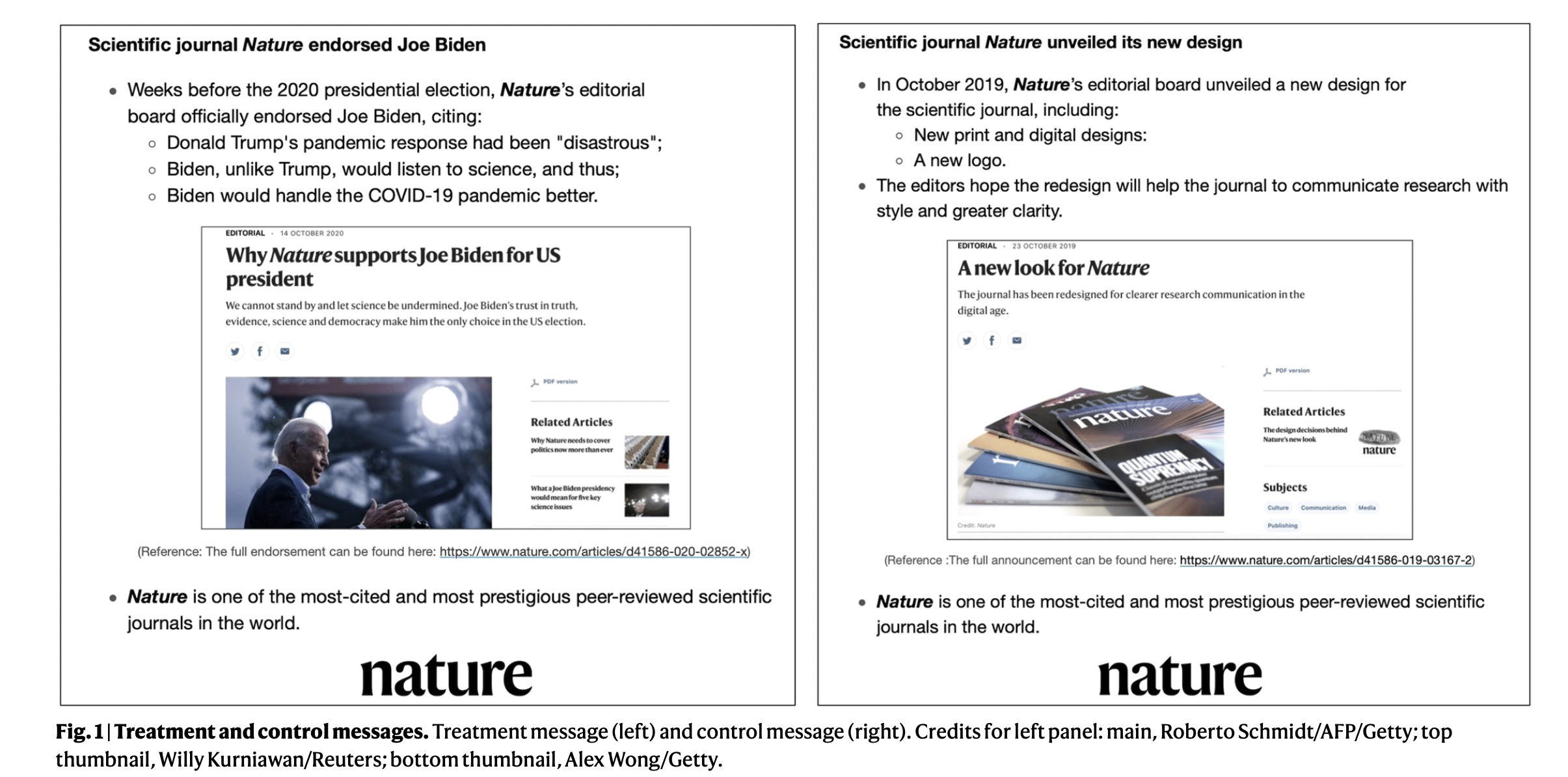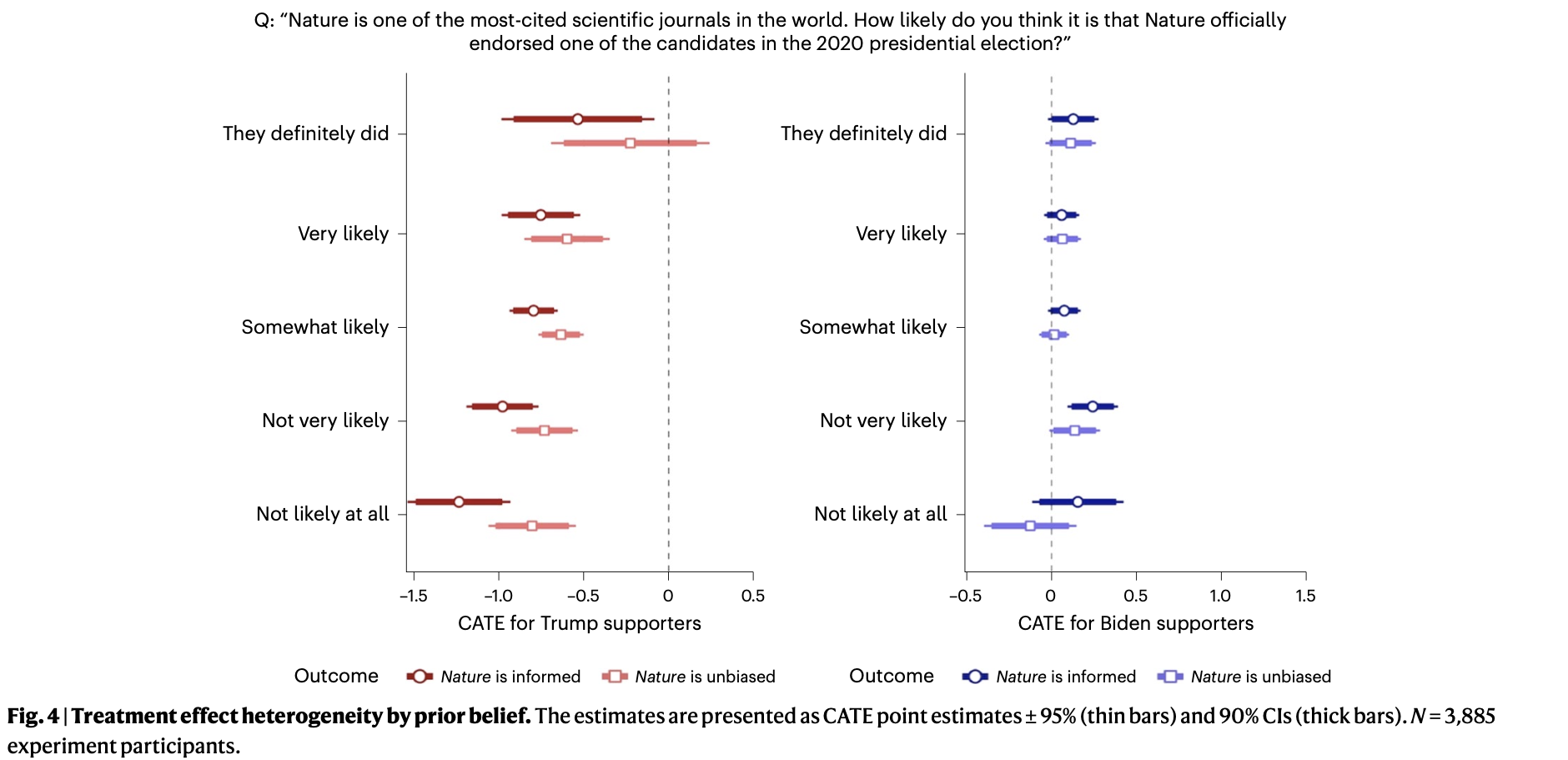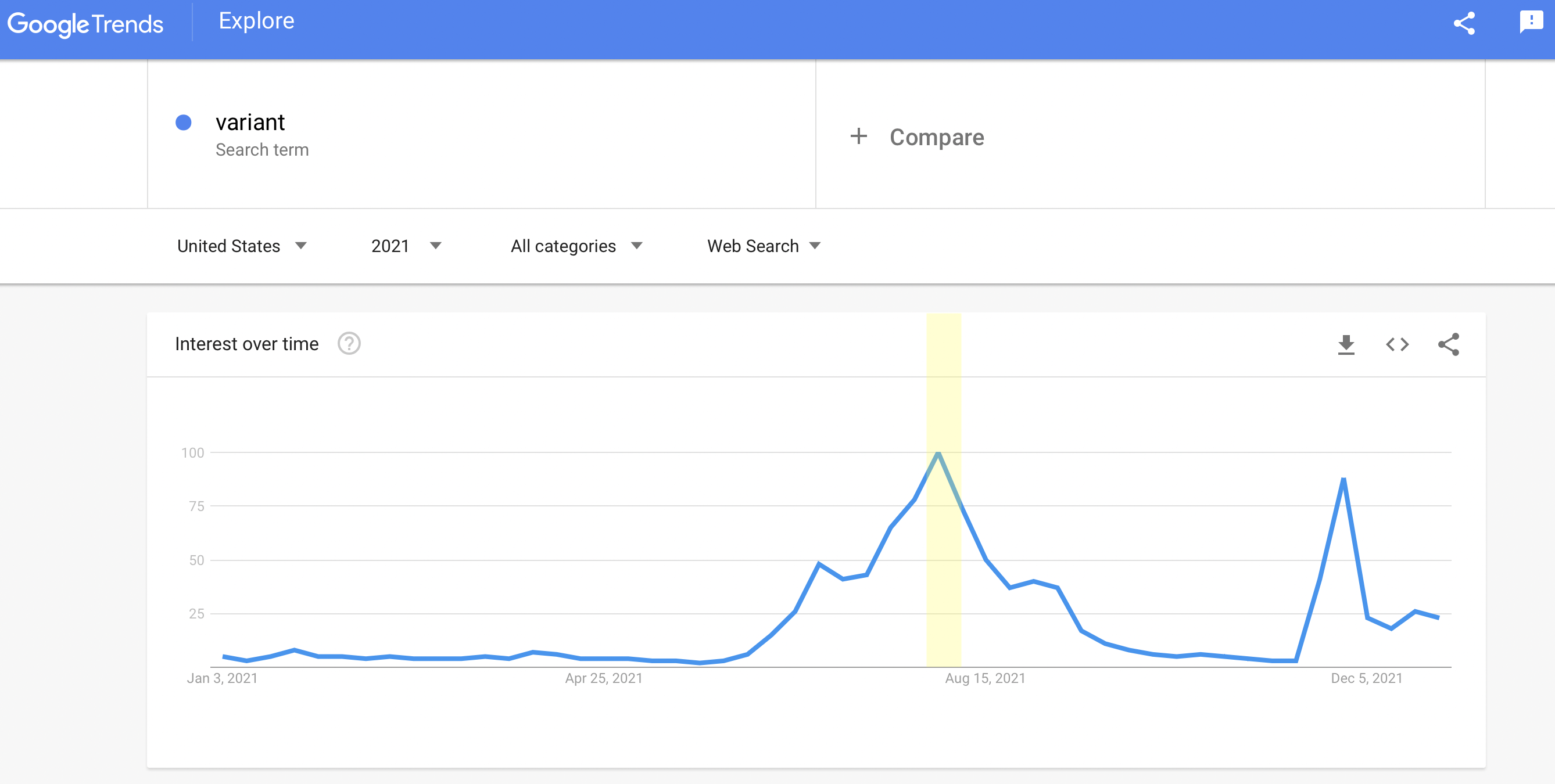Scientific Organizations Making Political Endorsements Can Undermine Public Trust in Scientific Expertise
Published in Social Sciences

Scientists got off the fence during COVID-19
Leading scientific organizations and publications have increasingly entered the realm of electoral politics. In the lead-up to the 2020 US Presidential Election, renowned scientific publications such as Nature, Scientific American, the Lancet Oncology, the New England Journal of Medicine, and Science, released editorial pieces criticizing the then-President Donald Trump's handling of the COVID-19 pandemic and his hostile stance towards science. Majority of these publications encouraged voters to replace Trump, with Nature, Scientific American, and the Lancet Oncology explicitly endorsing his contender Joe Biden. This event marked the first occasion in which Scientific American or the Lancet Oncology made a political endorsement.
While the editorial offices of these journals can hardly be blamed for being concerned about the politicization of scientific affairs under the Trump administration at the height of the COVID-19 pandemic and amid the bungled federal response, the tacit of making official endorsement can have unintended adverse consequences. Trust in scientific expertise, like too many other issues, has become a polarizing matter in the United States, where public confidence in the scientific community has been on the decline for decades, a trend driven primarily by conservatives. Given the polarized electorate and tenuous popular confidence in the scientific community, it is hard to gauge whether such endorsement would have any impacts on voters' political beliefs or preferences. Indeed, instead of moving the needle on the election, these well-intentioned statements could play into and intensify the existing distrust of scientists among supporters of the former President. The latter scenario was all the more worrisome considering the ongoing COVID-19 pandemic, which necessitated broad understanding of key scientific facts and widespread adherence to public health measures.
Studying the impact of Nature's endorsement
In 2021, I conducted a large-sample pre-registered experiment aiming to identify the effect of Nature's endorsement on Americans' attitudes toward Nature, the scientific community, and the two presidential candidates. In addition to self-reported attitudinal measures, the experiment also looks for behavioural responses, namely participants' demand for critical COVID-related public health information attributed to Nature.
A sample of 4,260 paid participants (representative of the U.S. adult population along demographic dimensions including age, gender, race, region, and education) were recruited online, screened for attention, and randomly assigned to receive one of two short messages about Nature.

The treatment group was informed about Nature's endorsement of Joe Biden and the editorial board's rationale for doing so; the message also included a screenshot of and a link to the endorsement piece. The control group was shown a message about Nature's new visual design and was not informed of the endorsement.
Seeing the endorsement reduced - and polarized - self-reported trust in Nature
Participants were asked in two survey questions about how much confidence they had in the editorial board of Nature. Seeing the endorsement message had large and significant negative effects on Trump supporters' self-reported level of trust. Among Trump supporters, trust in Nature for being "informed" when providing advice was -0.845 (full-sample) standard deviation lower in the treatment group than in the control group (p=0.000); trust in Nature for being unbiased was similarly -0.633 standard deviations lower among treatment Trump supporters than among control Trump supporters (p=0.000).

For Biden supporters, seeing the endorsement message had the opposite but quantitatively smaller effects. Trust in Nature's informed-ness and unbiased-ness among Biden supporters is 0.108 (p=0.000) and 0.045 (p=0.151) higher respectively for those who were assigned to read about the endorsement.
As one might expect, there were baseline differences in trust in Nature between Biden and Trump supporters, but the treatment effect was multiple times larger than the baseline difference, making the treatment group 2-3.5 times as polarized as the control group.

Trump supporters turned down COVID-related health information from Nature after exposure to the endorsement
Did this self-reported attitudinal change translate into changes in behaviors when there's health risk at stake? I tried to answer this question by offering participants information about the most pressing and fast-changing public health issue of the day. The experiment took place between July 28 and August 10, when the Delta variant, the first fast-spreading new variant of the coronavirus since the vaccine rollout, became salient in Americans' minds - U.S. infection numbers picked up, and the stock market plummeted on the news. In the face of this renewed and uncertain threat, Google search frequencies for the keywords like "variant", "beta", and "vaccine" reached an all-time high in the United States.

Experiment participants were prompted with a message about this exact issue which encouraged them to “stay informed about vaccine efficacy against new COVID variants”. The prompt also offered articles about this topic from multiple sources. Exposure to the treatment greatly reduced the Trump supporters' demand for information attributed to Nature. Under the control condition, Trump supporters opted to access the Nature article at a healthy rate of 37.1%; under the treatment condition, only 22.9% did so - a 14.2 percentage points or 38.3% decline (p=0.000).
This finding serves as a "revealed preference" evidence that seeing the endorsement did make Trump supporters value less what Nature has to say about a scientific issue that could affect their own health and commanded broad public attentions at the time.
Seeing the endorsement did not change either group's minds about Biden or Trump
After gauging participants' attitudes toward Nature, the experiment also looked at whether the endorsement was successful at changing people's opinions about the candidates. Participants were asked a battery of three questions about comparing Biden and Trump with respect to their ability to handle COVID-19 and to make use scientific evidence in policy making in general. The question was framed narrowly to be about the specific issues and quality that Nature's endorsement highlights, which was intended to be conducive to finding persuasive effects. But I failed to find any impacts. Not only are there no statistical significant effects, the confidence intervals on the effect sizes are narrow enough to reject large or modest effects.
There can be spillover effects on the scientific community
I also elicited participants' trust in scientists in general with questions that mirror those about trust in Nature. The endorsement treatment is estimated to have qualitatively similar effects on trust in the U.S. scientific community, but the magnitudes are markedly smaller.
This suggests that the potential reputation costs incurred is not limited to Nature itself, and the endorsement can create externality on the scientific community broadly.
What does this mean (and does not mean)
These results suggest that, if the objective is to shape public opinions and the political environment in a way that is conducive to scientific endeavours and evidence-informed policies, Giving endorsements like this has substantial downsides and little upside.
With a one-shot experiment, it is hard to know whether the attitudinal and behavioral impacts were short-lived or long-lasting. I hope researchers with bigger budget can help us find out in the future.
Nature's editorial board has thoughtfully responded to and discussed the findings of this paper in an editorial, and I also shared my response. While I believe that Nature's and other scientific organizations' endorsements were sincere reactions to truly troubling developments, the study shows they face very real constraints in their ability to persuade people while maintaining public trust.
But constraints need not be straitjackets. These results do not show that scientists can only stand in the sideline when an issue becomes politically polarizing. Prior research has showed that engaging in policy advocacy, even on politically policy issues as divisive as climate change, does not necessarily cost scientists their credibility - even though endorsing a candidate in a highly charged environment may be one step too far.
Follow the Topic
-
Nature Human Behaviour

Drawing from a broad spectrum of social, biological, health, and physical science disciplines, this journal publishes research of outstanding significance into any aspect of individual or collective human behaviour.



Please sign in or register for FREE
If you are a registered user on Research Communities by Springer Nature, please sign in